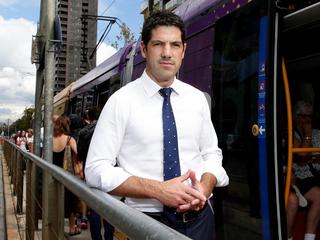SMART CITY: THE DIGITAL SURVEILLANCE STATE
Australian senator Alex Antic
https://www.youtube.com/watch?v=KKmWVSsBmrQ
Last week in parliament I spoke about the rise of the digital surveillance state. Now it’s a serious topic and it’s a serious matter and requires more than we’ve got time for today but I’m down here in the city of Unley, in Heywood Park in South Australia to show you exactly what I’m talking about: the concerns that I’ve got about where this all goes.
Have a look behind me: this is a screen down here, in the park, which looks pretty innocuous, I’ve got to say. You know, you’ve got information. You can come up and you can find out about the area, how it was named, the forebears and all that sort of stuff. Parks features, tells you a little bit about what’s in it. It’s all fine. Events. What’s coming up, you know, like Christmas carols. That sort of thing. No problem.
But have a look at this. This little area here. Smart city. Now this is the thing that I’m most concerned about. Not necessarily this but what this infrastructure is going to do in terms of where it goes and the information that’s being gathered about us when we’re just going about our daily lives, and how it will be used in the future.
Have a look at this: let’s take one straight off the top: barbecue usage. This would tell us: it loads up – purportedly loads up – all the information about how the barbecues are being used in the area now. “So what?” you might say. Well, let’s assume in a world not far from now your government has declared a climate emergency. By the way, your government has done it here in South Australia already, which is a lunatic nonsense. It is just absolutely crazy. But we enjoyed the Clipsal 500 with all the diesel fumes as well by the way, so bring that in.
But let’s go back to the park. Have a look at this: it tells you when the barbecues have been used over the last month. Now, imagine you’re in a climate lockdown. You are told no-one can barbecue meat because you’re saving the planet. Saving the planet. And you come down here to use one of the barbecues. It works out who is down here. It works out someone is using the barbecue and the police come down to shut down your barbecue. Problem number one.
Let’s have a look at some of the others. Amenities monitoring. Here as it loads up, you’ve got toilet usage per day. We don’t need to know that. Now you might say: “That’s because we need to know when to clean them.” Just come out and clean them. We don’t need to know who is going in there and using the can. It’s as simple as that.
Back. EV charger usage. So that’s electric vehicles for the knuckle draggers like me amongst us. It tells you how many. Not many, by the way, because no one drives them, but in any event: how many times they’ve been used over the last month or so. How about this one? People counting! You want to take a deep dive into your dystopian future under the digital surveillance state. It’s right here. This little board here tells you how many times people come through the park. Essentially it tells you how many unconnected WIFI devices there are, and so that would be everyone’e phone. This is telling you how many people are in the park at the moment. So once again, imagine a lockdown scenario, another emergency, another COVID outbreak, or monkey pox or, you know, whatever you like, you name it: we’ll make it up. Six devices in this park at the moment: that’s down fifty percent for normal. Your local government, your state government, your federal government, might want it to be none. And this will tell you. These sensors up in this light, the WIFI connections, they’re all interlocked. There will be facial recognition cameras in there so, you know, don’t think you are just going to leave your phone at home. The cameras will pick you up in future.


Leave A Comment